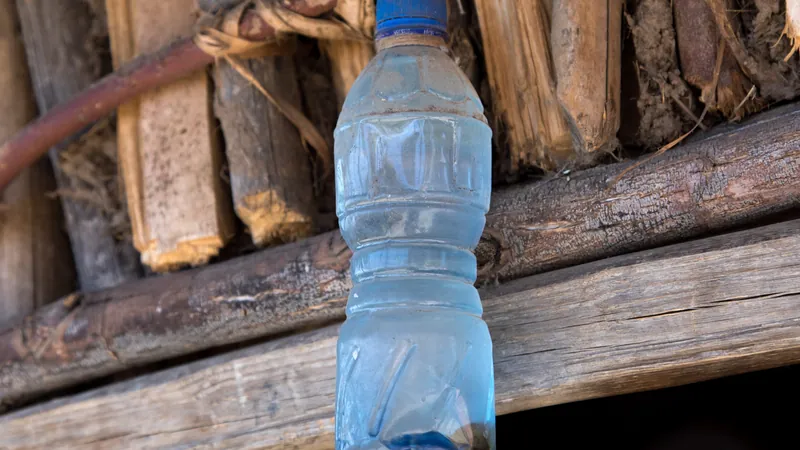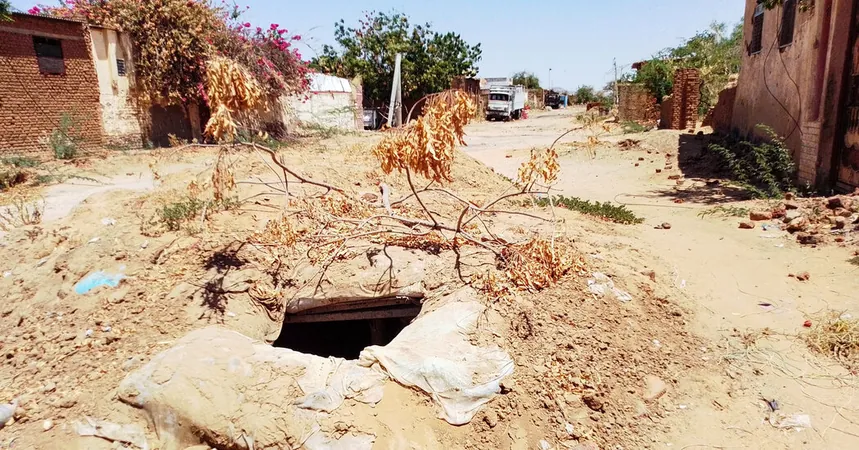
Infectious Curse: Tourists Bring Home Cholera from Ethiopian Holy Water
2025-04-11
Author: Ming
What was meant to be a spiritual journey has turned into a health nightmare for European tourists! Those who returned from Ethiopia with bottles of holy water are facing an unexpected challenge—cholera.
Reports reveal that three individuals in Germany and four in the UK fell ill after consuming or splashing their faces with this supposedly blessed water. Alarmingly, two of them required intensive medical care. Fortunately, all reported cases have recovered, according to findings in the journal Eurosurveillance.
The outbreak traces back to February, following individual travels to Ethiopia in January. Patients noted visits to the Bermel Giorgis well, a revered site believed to be a source of healing and spiritual clarity for believers of the Ethiopian Orthodox Tewahedo Church.
However, the European Centre for Disease Prevention and Control (ECDC) issued a stark warning: the well is located in an area grappling with a cholera outbreak, complicated further by ongoing armed conflict that hampers effective public health measures.
This alarming scenario indicates that until the contamination issue at the well is resolved, new cases may continue to arise. Testing confirmed that the cholera strain involved was notably virulent.
Travelers brought home **Vibrio cholerae O1**, a bacteria notorious for its resistance to a myriad of antibiotics. This strain not only poses a high risk of infection but has also reportedly developed resistance to several common treatment options.
Typically, cholera results in severe watery diarrhea and vomiting, with oral rehydration being a primary treatment. While this particular strain of cholera remains susceptible to tetracycline—a favored antibiotic for treatment—other strains across Africa are raising alarm due to emerging resistance.
The unusual spread of cholera from Africa to Europe serves as a critical reminder for travelers to be vigilant about food and water safety abroad. The authors of the Eurosurveillance report urge caution against consuming holy water.
As the global landscape shifts with rising cholera cases post-pandemic, the need for sustainable investments in water, sanitation, and hygiene (WASH) is more crucial than ever. The World Health Organization highlights ongoing support is vital for low-income countries to manage outbreaks effectively through comprehensive health initiatives.
In summary, what began as a quest for spiritual enlightenment could turn into a cautionary tale—underscoring the importance of hygiene and health awareness as we travel the globe.



 Brasil (PT)
Brasil (PT)
 Canada (EN)
Canada (EN)
 Chile (ES)
Chile (ES)
 Česko (CS)
Česko (CS)
 대한민국 (KO)
대한민국 (KO)
 España (ES)
España (ES)
 France (FR)
France (FR)
 Hong Kong (EN)
Hong Kong (EN)
 Italia (IT)
Italia (IT)
 日本 (JA)
日本 (JA)
 Magyarország (HU)
Magyarország (HU)
 Norge (NO)
Norge (NO)
 Polska (PL)
Polska (PL)
 Schweiz (DE)
Schweiz (DE)
 Singapore (EN)
Singapore (EN)
 Sverige (SV)
Sverige (SV)
 Suomi (FI)
Suomi (FI)
 Türkiye (TR)
Türkiye (TR)
 الإمارات العربية المتحدة (AR)
الإمارات العربية المتحدة (AR)